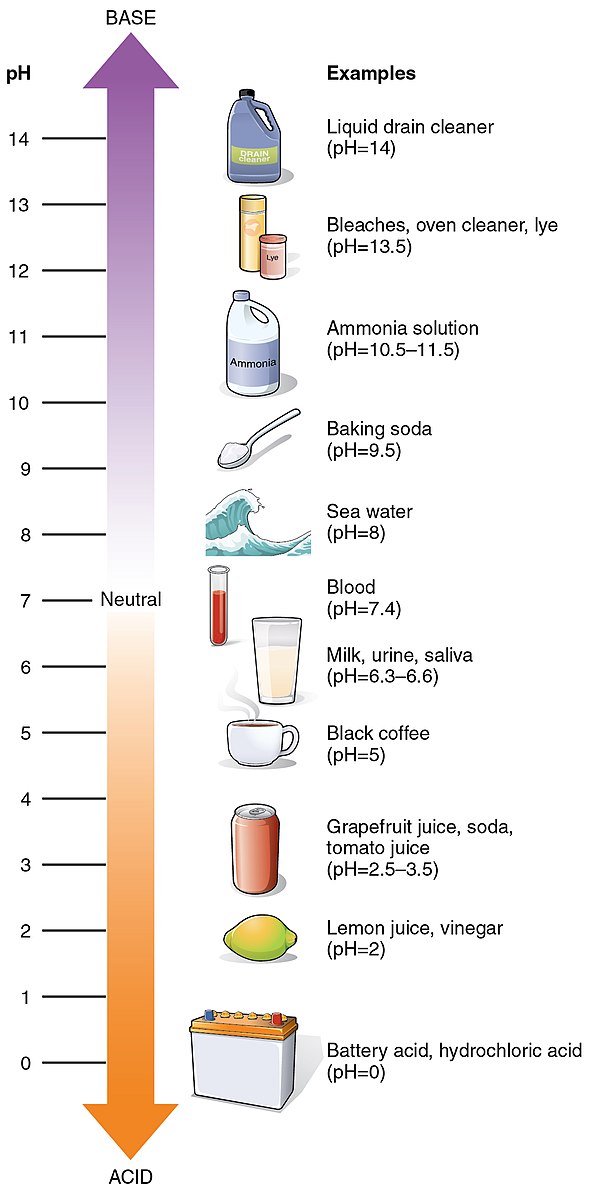The pH value of tap water in Sydney, Australia, falls within the range of 6.5 to 8.5, as outlined by the Australian Drinking Water Guidelines. This range ensures that the water is neither too acidic nor too alkaline, making it safe for consumption and various uses. Understanding the pH of your tap water is crucial, as it can impact the health of your aquarium and the effectiveness of home remedies.
Maintaining the pH Balance
To maintain the pH balance in your tap water, you can use home remedies such as adding baking soda to increase the pH or vinegar to decrease it. However, it is essential to monitor the pH regularly to ensure it remains within the recommended range. For aquarium owners, understanding the pH of your tap water is crucial, as different species of fish and aquatic life require specific pH levels to thrive.
Contaminants in Sydney’s Tap Water
 Image source: OpenStax College
Image source: OpenStax College
Contaminants, chemicals, and substances present in Sydney’s tap water include:
- Chlorine: Used for disinfection, chlorine is typically found in tap water at levels below 5 mg/L, as required by the Australian Drinking Water Guidelines.
- Fluoride: Added to drinking water to promote dental health, the concentration in Sydney’s tap water is around 1 mg/L.
- Lead: Although not typically found in significant concentrations in Sydney’s tap water, lead can leach into water from aging pipes or plumbing fixtures.
- Disinfection By-Products (DBPs): These are formed when chlorine reacts with organic matter in the water. The most common DBPs are trihalomethanes (THMs) and haloacetic acids (HAAs).
- Pharmaceuticals and Personal Care Products (PPCPs): These substances can enter the water supply through human excretion and wastewater discharge. While not present in high concentrations, ongoing research is being conducted to understand their potential health impacts.
Addressing Water Quality Concerns
To deal with these contaminants, you can consider installing a water filtration system designed to remove specific substances. For example, activated carbon filters can effectively reduce chlorine, THMs, and HAAs, while reverse osmosis systems can remove a wide range of contaminants, including fluoride, lead, and pharmaceuticals.
Conclusion
In summary, Sydney’s tap water has a pH value between 6.5 and 8.5, making it safe for consumption and general use. Contaminants such as chlorine, fluoride, lead, DBPs, and PPCPs are present but typically within acceptable levels. To address specific water quality concerns, consider installing a suitable filtration system.
References:
– Sydney Water Quarterly Drinking Water Quality Report
– Sydney Water Water Analysis
– Is All Drinking Water the Same?
– Reddit Post on Sydney’s Water Parameters
– What is in Sydney Tap Water?
